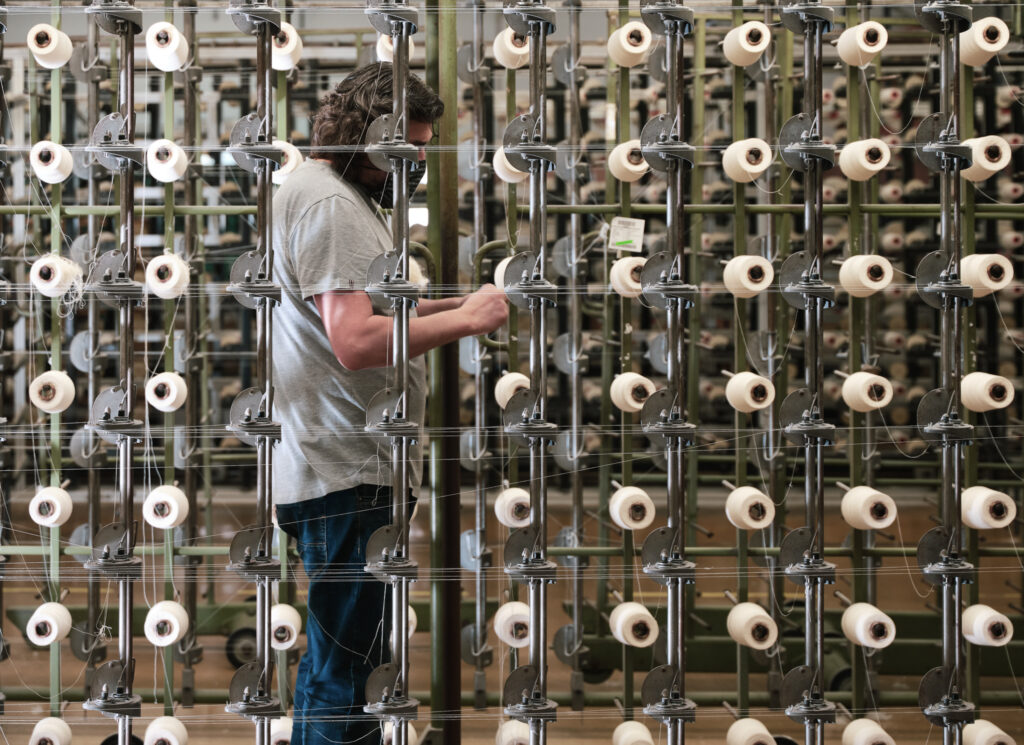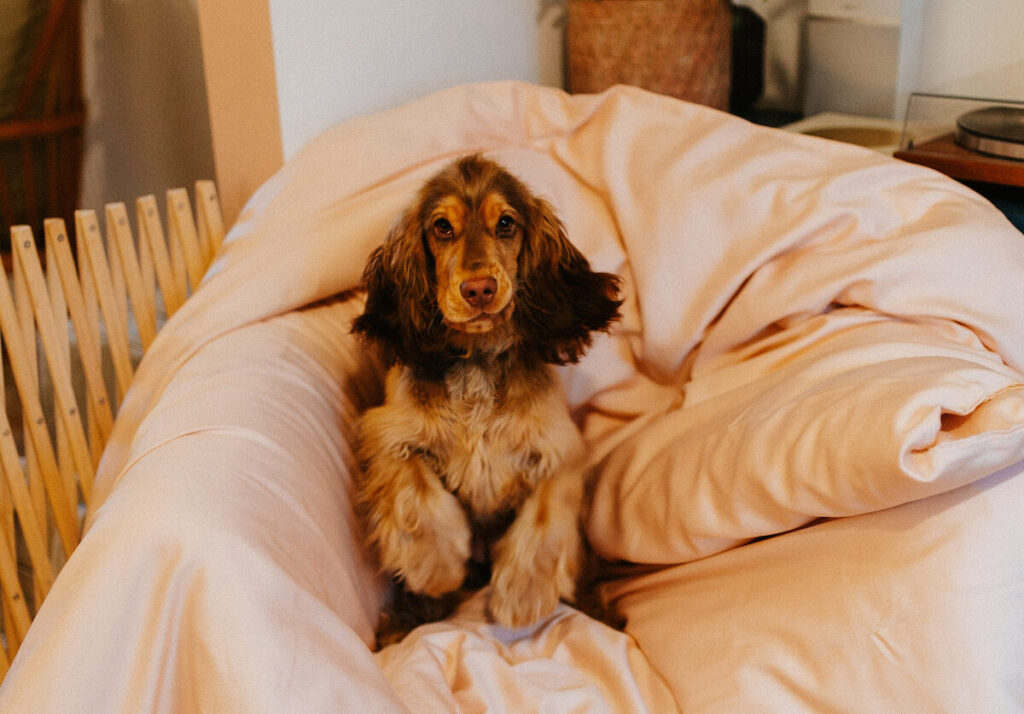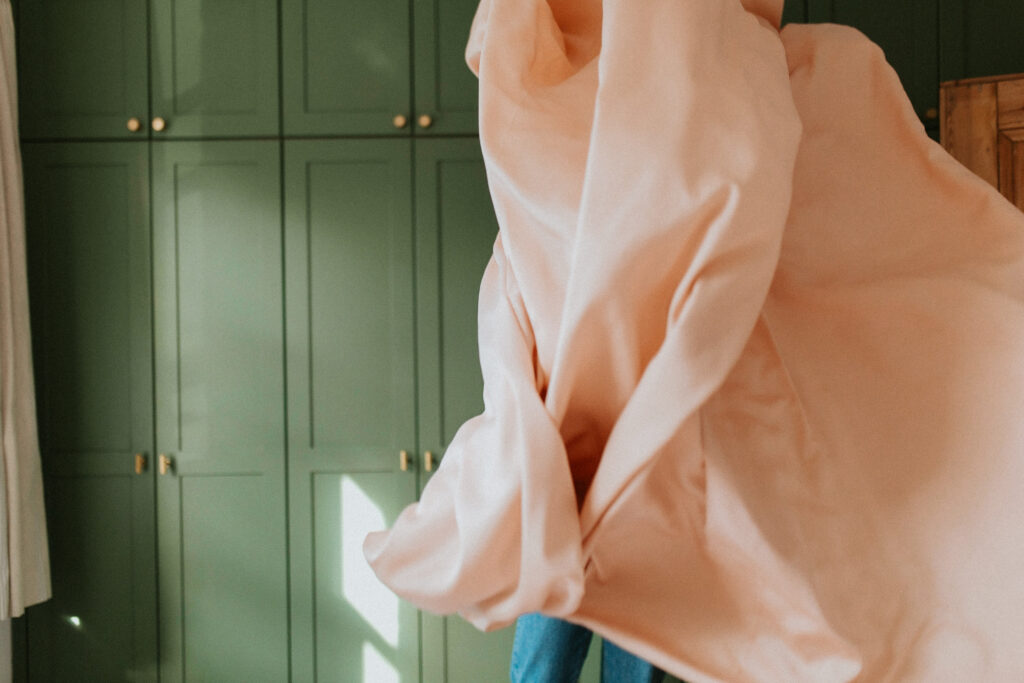Best eco-Friendly Candles: Clean-burning, sustainable and toxin-free
We all know how important sleep is for feeling fully recovered and fresh for the day ahead, and sustainable bedding can all the difference. This was brought home to me recently while travelling and sweating in polyester sheets for more nights than I care to count.
So, what makes for great quality sustainable bedding? We asked Sophie Lang from Leisurely to give us the lowdown.
What makes for top quality sustainable bedding?
“The secret is, it’s not all about thread count!” says Leisurely founder, Sophie Lang. “To keep it simple, start with the materials. Good quality natural materials are breathable and temperature regulating, preventing night sweats and helping you wake up feeling fresh and cool the next day.”
Leisurely opt for TENCEL™, a certified version of lyocell, which is silky-soft, breathable, and sustainable. Organic cotton and linen are also great options that feel good on your skin, without harming the planet.
“Be careful with bamboo as it can be made in a chemical-intensive process, taking away from its environmental credentials,” warns Sophie.
The fabric weave will also be an important factor, that determines how the sheets feel:
- Sateen: smooth and luxurious
- Percale: crisp
- Flannel: cosy (for the depths of winter)

What are the most important certifications?
Beyond what the sheets are made from, pay attention to the ethos of a brand and whether their values align with their actions.
A sustainable brand should manufacture responsibly and offer transparency of the supply chain. Look to see if they tell you where their products are made and, importantly, who makes them? If not, this is a red flag.
“The key to certifications is that they should be specific to a product,” Sophie maintains. “It gets technical very quickly, though. For instance, at Leisurely our bedding is Oeko-Tex certified to show that no toxic chemicals are used in the supply chain, and the fabric holds the TENCEL™ licence. The wood is sourced from FSC and PEFC certified forests to ensure responsible forest management and no ancient or endangered trees are used. The factory hold SA8000 for labour standards, as well ISO14001 for environmental management. For other fabrics, GOTS is the highest standard for organic cotton, meanwhile European Flax is a good one to go for linen.
Labels such as B Corp definitely show good intentions, but ideally should be accompanied by product-specific certifications.”

How sustainable are dyes?
Sophie insists: “The dyes and chemicals used to make your bedding matter – both for you and for the planet. We spend around a third of our lives in bed so it’s better if we’re not absorbing harmful chemicals while we sleep. Also, harmful dyes also pollute land and waterways in the supply chain, which is why it’s important we stop using both to protect our environment and places people live.”

How should you wash your sheets? (And how often!?)
Sophie advises washing at 30°C is best for saving energy and keeping your sheets in top condition. If you want a little extra freshening up occasionally 40°C is fine, but avoid the tumble dryer whenever possible to save on your sheets’ longevity.
She adds: “A good rule of thumb is to wash your sheets every two weeks for a healthy, fresh sleep environment – but don’t stress if its been longer, we all know life gets busy! One of the best qualities of TENCEL™ sheets is that they stay fresher longer, thanks to their moisture-wicking technologies. And even better, the micro fibres smooth as they dry so you don’t even need to iron them.”
What about duvets and pillows when it comes to sustainable bedding?
“Traditional choices are down or polyester which both carry environmental issues, however there’s some great alternatives appearing,” says Sophie. “Sheep’s wool duvets are a great option – sheep shearing is an essential process in agriculture and we actually have an excess of sheep’s wool here in the UK, which unfortunately just goes to waste. Floks and Devon Duvets do some gorgeous sheep’s wool duvets that are really cosy and made in the UK. You can also look for recycled options such as recycled down.”
The sustainable bedding brands we love at Live Frankly
Leisurely | Plant-based linen
Why we love Leisurely:
- Leisurely combines beautiful design with sustainability, ensuring that their products are both aesthetically pleasing and environmentally friendly.
- Their bed linens are made from 100% TENCEL™ Lyocell, a plant-based fiber derived from wood pulp, offering exceptional softness and comfort.
- TENCEL™ Lyocell is hypoallergenic, antibacterial, and breathable, making it kind to sensitive skin and perfect for restful sleep.
- Designed to be passed down through generations, their bed linens are created with durability and longevity in mind.
Why Leisurely is a better choice:
- The production process for TENCEL™ reuses all substances, preventing dirty wastewater from polluting the environment.
- The factory has an ETP (effluent treatment plant) to ensure any water used in production is cleaned properly before being released into the environment.
- Partnering with a family-run, Oeko-Tex approved factory in Portugal with 75 years of experience ensures ethical and high-quality production.
- All off-cuts at the factory are turned into new yarn, which is then used for new sheets and blankets, ensuring minimal waste.
- Leisurely has signed up to the CanopyStyle initiative to protect Ancient and Endangered Forests and works with a factory that ensures fair wages and ethical practices.





